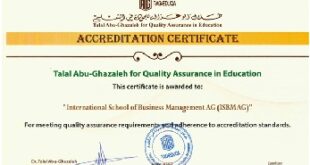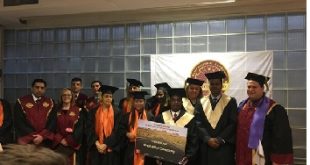“But I worked really hard; I don’t think my grade is in keeping with the effort I put into this assignment.” All faculty members are likely to have heard some version of these statements through the course of their teaching experience. If you are among the lucky few who have yet to hear the chatter of this nature, you are bound to hear it soon enough. As frustrating as these statements might seem to an evaluator in the face of a poorly written response, one has to acknowledge on deeper reflection that the lack of a relationship between effort and success is something that not just students but all of us struggle to appreciate.
Socially, we have been primed to associate hard work or effort with positive outcomes. The age-old adage, “Success is 1% inspiration and 99% perspiration,” does little in the way of shaping us to accept failure in the face of hard work. It is certainly not something specific to the student community. If you work hard in the workplace and do not receive recognition for it in your annual appraisal, you are disappointed. If you spend hours meticulously planning a holiday and something nonetheless does not go to plan, sadness kicks in. The underlying factor in all these examples is that we automatically equate hard work with success. The limited nature of the relationship between these two factors, however, has been best studied with regard to academic outcomes.
The most revealing evidence comes from a 12-year study conducted at the University of Michigan by Schuman and colleagues (1985), which failed to find any relationship between hours studied and grade point average (GPA). In other words, the relationship between effort and grades appeared to be random. What might be the reasons for such counterintuitive findings, and what are the implications for educators?
Effort is only part of the story
It is important to acknowledge that effort is but one variable in the complicated equation that determines success. In the case of academic performance, it could be one’s physical and mental health, one’s ability to express what they have learned in a written or oral format, as well as one’s inherent ability. Some data suggest that it is knowledge accumulated over time, or prior knowledge, rather than hard work that predicts student performance (Au et al., 2017). Personality traits such as grit and self-discipline have also been reported to be predictive of educational outcomes (Hagger & Hamilton, 2018). Similarly, conscientiousness consistently performs well as a predictor of educational success (Busato et al., 2000).
Other skill sets an individual possesses may also play a role in improved grades. Knowledge and application of time management strategies were highlighted as important predictors of medical students’ performance in their first semester (West & Sadoski, 2011). Executive skills of monitoring, inhibition, planning, and set-shifting have also been found to predict academic performance (Latzman et al., 2010; Ahrens et al., 2019).
There may also be a number of factors outside of the individual’s control that determine the impact of their effort. Wills and colleagues (2005) argue that social categories such as class, gender, and race may also contribute to one’s experience of success. Part of understanding the lack of a relationship between effort and success is also acknowledging that we live in an imperfect world.
Rethinking effort
The University of Michigan study conceptualized hours studied as a measure of effort. Perhaps this conceptualization itself offers a very narrow view of ‘effort’. The quality of effort is likely to be just as important as the quantity of effort. Thus, it is important that both of these aspects be taken into consideration. For instance, studying 12 hours the night before a test is hard work, but it cannot be expected to yield results consistent with those of 5 separate 2-hour study sessions (a total of 10 hours) over the past week. Working hard and smart should thus be the mantra to follow.
Appropriate learning strategies could be one way of working smart. For instance, replacing re-reading course material with short self-tests scattered over an extended period of time may be more beneficial to learning. Spaced retrieval or practicing material at regular intervals is known to be a more effective learning tool than mass practice or cramming all the information in a single session. Rather than just “effort,” then, the consistent effort might be a much better predictor of success.
Along similar lines, Rau and Durand (2000) suggest it is important to consider not just variables such as the number of hours studied but also how the non-studying hours are spent and the cumulative impact of past effort from the high school years. Together, they termed this an “academic ethic,” which in layman’s terms refers to consistent, diligent study attempts. Academic ethics were found to be a predictor of academic grades.
A recipe for academic success
What can all of this tell us about academic success? Apart from just effort, students need to be encouraged to demonstrate consistent effort and build a strong academic ethic. The use of effective time management strategies and training in planning, organization, and self-monitoring skills may be effective ways of improving student performance. Encouraging students to practice recalling information or actively engaging with the content rather than simply re-reading notes is likely to aid their learning of the same. Lastly, building awareness that effort alone is insufficient to get good grades. Rather, quantity and quality of effort both determine the eventual academic outcome.
Prepared by: Dr. Deepa Bapat Adjunct Faculty FLAME University
This article only reflects the opinion of the author
 Newspatrolling.com News cum Content Syndication Portal Online
Newspatrolling.com News cum Content Syndication Portal Online






